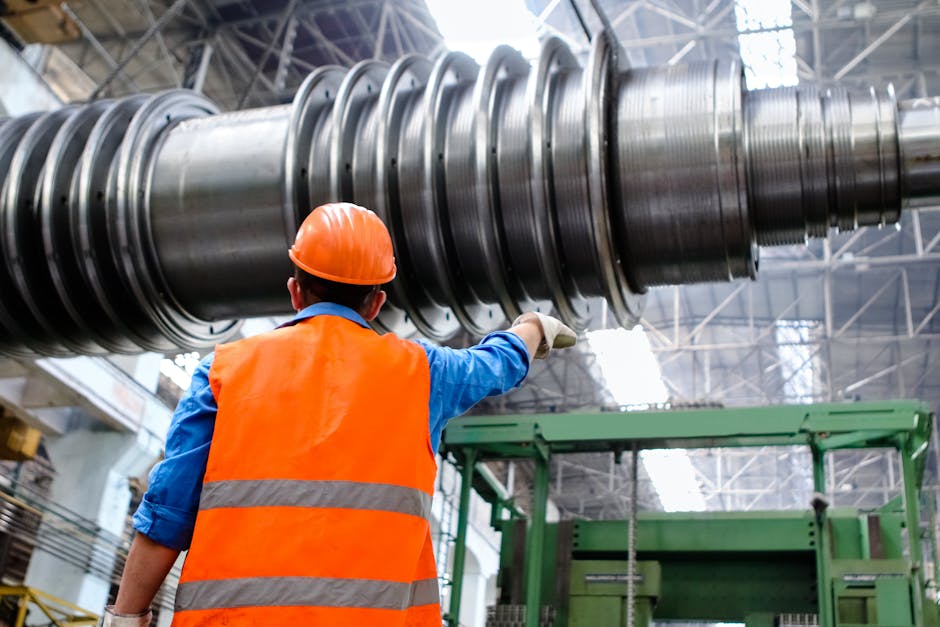Manchester’s Manufacturing Landscape: Current State and Future Directions
The manufacturing landscape in Manchester is undergoing significant changes, shaped by technological advancements, economic shifts, and global competition.
This report provides an overview of the current state of Manchester’s manufacturing industry, highlighting the challenges faced by local manufacturers and exploring the opportunities for growth and innovation.
With a focus on the impact of technology, the report also delves into the future directions of Manchester’s manufacturing sector, offering strategic insights for navigating the evolving landscape.
By examining the industry’s present condition and projecting future developments, this analysis aims to provide a comprehensive understanding of Manchester’s manufacturing environment and facilitate informed decision-making for stakeholders.
Key Takeaways
- Manchester’s manufacturing industry is experiencing significant growth and diversification, contributing to job creation and increased prosperity.
- The industry faces challenges such as supply chain disruptions and the growing need for skilled labour, but addressing these challenges benefits individual manufacturers and the industry as a whole.
- There are opportunities for growth and innovation in Manchester’s manufacturing sector, including diversification of product lines, adoption of advanced technologies, and embracing sustainable manufacturing practises.
- Technology, such as automation and digital transformation, is having a significant impact on Manchester’s manufacturing industry, enhancing productivity, streamlining processes, and positioning the city as a hub for innovation and growth.
Manchester’s Manufacturing Industry Overview

The Manchester manufacturing industry is experiencing significant growth and diversification. This expansion has led to a substantial economic impact on the region, contributing to job creation and increased prosperity. Workforce development has been a key focus within this industry, as companies strive to meet the demand for skilled labour in advanced manufacturing processes.
The economic impact of this growth extends beyond the manufacturing sector, influencing ancillary industries and the overall economic vitality of the region.
In response to this growth, Manchester has seen a concerted effort to invest in workforce development programmes. These initiatives aim to equip individuals with the necessary skills to thrive in the evolving manufacturing landscape. As technology continues to transform the industry, the demand for a highly skilled workforce becomes increasingly essential.
By investing in training and education, Manchester is ensuring that its workforce remains competitive and capable of meeting the demands of a rapidly advancing manufacturing sector.
The economic impact of this growth is evident in the increased employment opportunities and the overall economic prosperity of the region. As the manufacturing industry continues to evolve, the emphasis on workforce development will be crucial in sustaining this growth and ensuring Manchester’s position as a hub for advanced manufacturing.
Challenges Faced by Manchester’s Manufacturers

Manchester’s manufacturers are currently facing a variety of challenges as they navigate the evolving landscape of the industry. Two significant challenges impacting the sector are supply chain disruptions and workforce development. The table below provides a concise overview of these challenges:
| Challenges | Impact |
|---|---|
| Supply Chain | Disruptions in the supply chain have led to delays |
| in production and increased costs for manufacturers. | |
| Manufacturers are seeking resilient supply chain | |
| solutions to mitigate future disruptions. | |
| Workforce | Development |
| There is a growing need for skilled labour in | |
| manufacturing. Companies are investing in training | |
| programmes to upskill existing employees and attract | |
| new talent to ensure the industry’s future success. |
These challenges require strategic interventions to ensure the continued growth and success of Manchester’s manufacturing sector. Adapting to resilient supply chain models and investing in workforce development are crucial steps in overcoming these obstacles. Addressing these challenges will not only benefit individual manufacturers but also contribute to the overall strength and resilience of the manufacturing landscape in Manchester.
Opportunities for Growth and Innovation

Amidst the challenges faced by manufacturers in Manchester, opportunities for growth and innovation are emerging as key focal points for the industry’s advancement. Manchester’s manufacturing sector is poised for significant development through the following avenues:
-
Diversification of Product Lines: Manufacturers can explore expanding their product portfolios to cater to evolving consumer demands and market trends. This diversification can open up new revenue streams and mitigate the risks associated with reliance on a single product.
-
Adoption of Advanced Technologies: Integrating cutting-edge technologies such as automation, data analytics, and artificial intelligence into manufacturing processes can enhance efficiency, reduce costs, and improve product quality.
-
Focus on Sustainable Practises: Embracing sustainable manufacturing practises not only alines with global environmental initiatives but also presents opportunities for cost savings and improved brand reputation.
-
Collaboration and Partnerships: Forming strategic partnerships with research institutions, technology firms, and other industry players can foster innovation and knowledge exchange, leading to the development of pioneering products and processes.
Technology’s Impact on Manchester’s Manufacturing

With the rapid advancement of technology, Manchester’s manufacturing sector is experiencing a profound impact that is reshaping operational processes and enhancing productivity. Automation and digital transformation have become pivotal, leading to significant efficiency improvements and paving the way for smart manufacturing.
Automation technologies, such as robotics and intelligent systems, are streamlining production processes, leading to higher precision, reduced waste, and increased output. This not only enhances productivity but also contributes to higher quality standards.
Digital transformation is another key factor reshaping Manchester’s manufacturing landscape. The integration of advanced digital technologies, including Internet of Things (IoT), big data analytics, and cloud computing, is optimising operational efficiency, enabling predictive maintenance, and facilitating real-time monitoring of manufacturing processes. This shift towards smart manufacturing is fostering agility, adaptability, and sustainability within the sector.
As Manchester’s manufacturing sector continues to embrace these technological advancements, it is poised to further solidify its position as a hub for innovation and growth. However, it is essential for industry players to strategically navigate this digital transformation to ensure sustainable and competitive operations in the future.
Future Strategies for Manchester’s Manufacturing Sector

In light of the evolving technological landscape, the manufacturing sector in Manchester must adopt comprehensive strategies to ensure sustained growth and competitiveness. To achieve this, the following strategies are imperative:
-
Investment in Innovation: Manchester’s manufacturing sector needs to prioritise investment in research and development to foster innovation. Embracing advanced technologies such as automation, artificial intelligence, and data analytics will enhance productivity and product quality.
-
Collaboration with Educational Institutions: Establishing partnerships with universities and technical colleges can facilitate the development of specialised programmes tailored to the needs of the manufacturing industry. This collaboration can help in nurturing a skilled workforce adept at handling modern manufacturing technologies.
-
Adoption of Sustainable Practises: Implementing eco-friendly and sustainable manufacturing processes not only alines with global environmental initiatives but also appeals to environmentally conscious consumers, thus improving market competitiveness.
-
Workforce Development Programmes: Implementing training programmes and upskilling initiatives for the existing workforce is essential. This will ensure that employees are equipped with the necessary skills to operate and maintain advanced manufacturing technologies, driving overall efficiency and productivity.
Frequently Asked Questions
What Are the Specific Government Policies and Incentives in Place to Support Manchester’s Manufacturing Sector?
Government policies and financial incentives play a crucial role in supporting Manchester’s manufacturing sector. Incentives such as tax breaks and grants are aimed at fostering supply chain resilience and promoting technology integration, thus boosting the region’s manufacturing landscape.
How Do Manchester’s Manufacturers Address Sustainability and Environmental Concerns in Their Operations?
Amidst growing environmental concerns, Manchester’s manufacturers are implementing sustainability initiatives, integrating green technologies, optimising supply chain management, and focussing on waste reduction. By embracing these practises, they are working toward a more environmentally friendly and sustainable future.
What Are the Key Skills and Training Programmes Available to Support the Workforce in Manchester’s Manufacturing Industry?
In Manchester’s manufacturing industry, skills development is supported through vocational training, apprenticeship programmes, and technical education. These initiatives aim to equip the workforce with the necessary expertise to meet the evolving demands of the sector.
How Do Manchester’s Manufacturers Collaborate With Universities and Research Institutions to Drive Innovation?
In fostering innovation, Manchester’s manufacturers engage in strategic partnerships with universities and research institutions. These collaborations yield cutting-edge solutions and drive economic growth. Such alliances leverage academic expertise and industrial acumen to propel innovation in the manufacturing landscape.
What Are the International Trade and Export Opportunities for Manchester’s Manufacturers in the Current Global Market?
In the current global market, Manchester’s manufacturers have significant international trade and export opportunities. Through international partnerships and market diversification, they can tap into new markets, increase their customer base, and enhance their competitive position.
Conclusion
In conclusion, the future of Manchester’s manufacturing sector holds great potential for growth and innovation.
With the challenges being addressed and technological advancements being embraced, the industry is poised for transformation.
It is clear that Manchester’s manufacturers are adapting to the changing landscape and are well-positioned to capitalise on new opportunities.
The coming years will reveal the extent of the sector’s evolution and its impact on the city’s economic landscape.
Contact us to discuss our services now!
